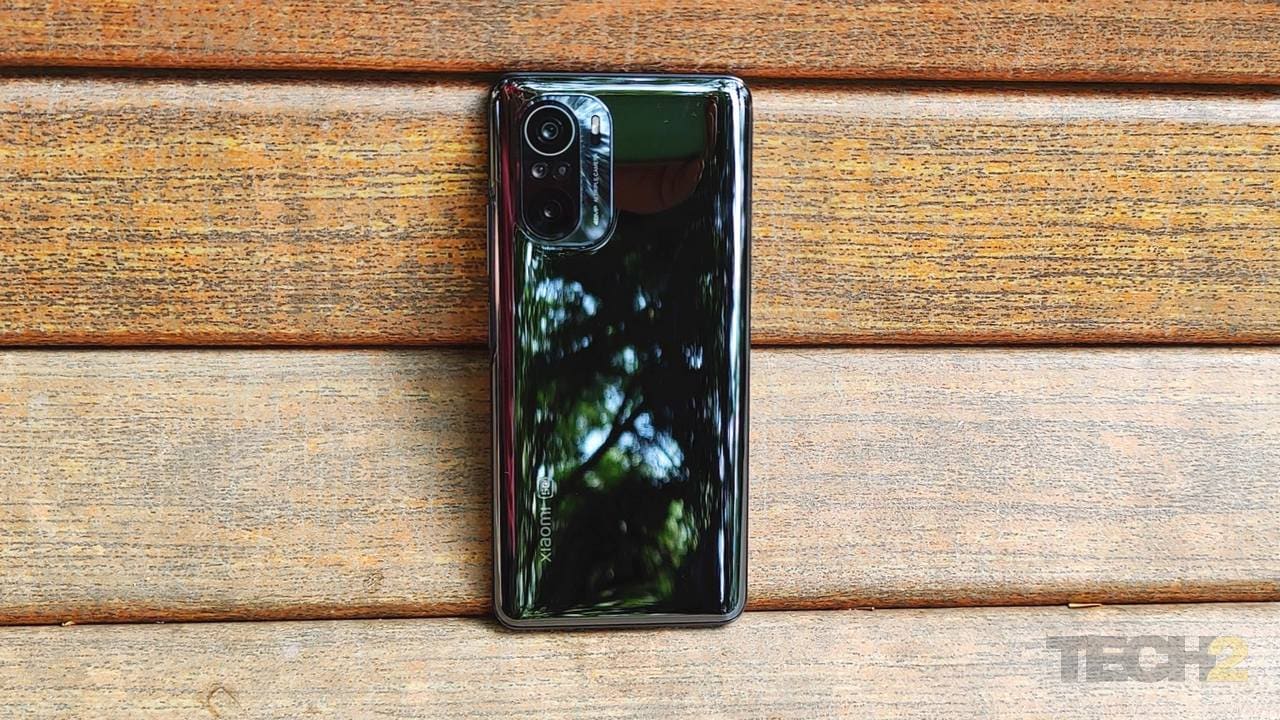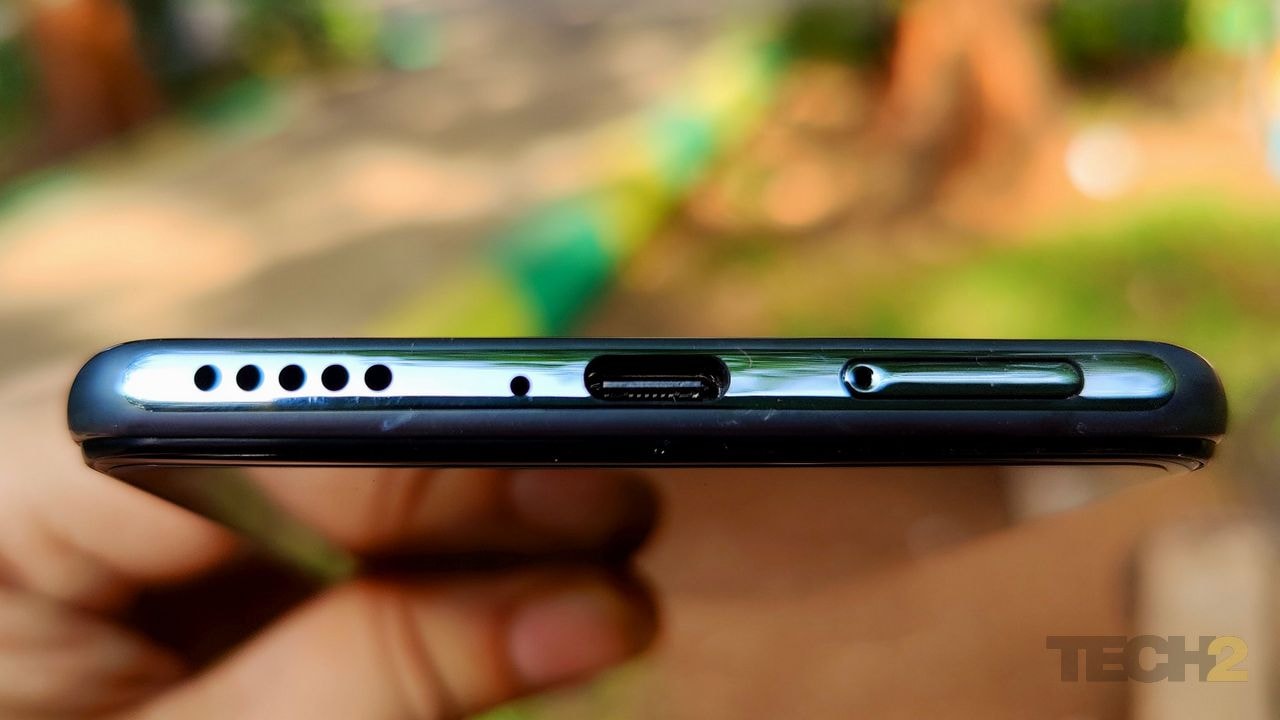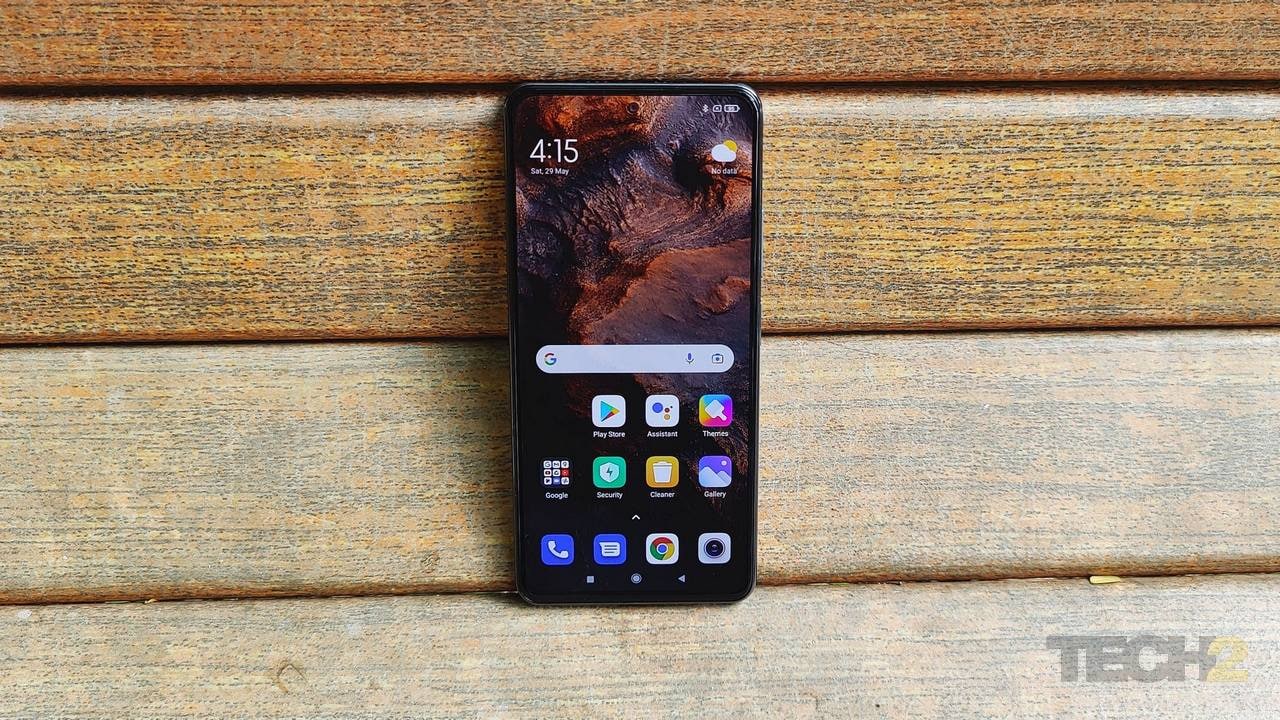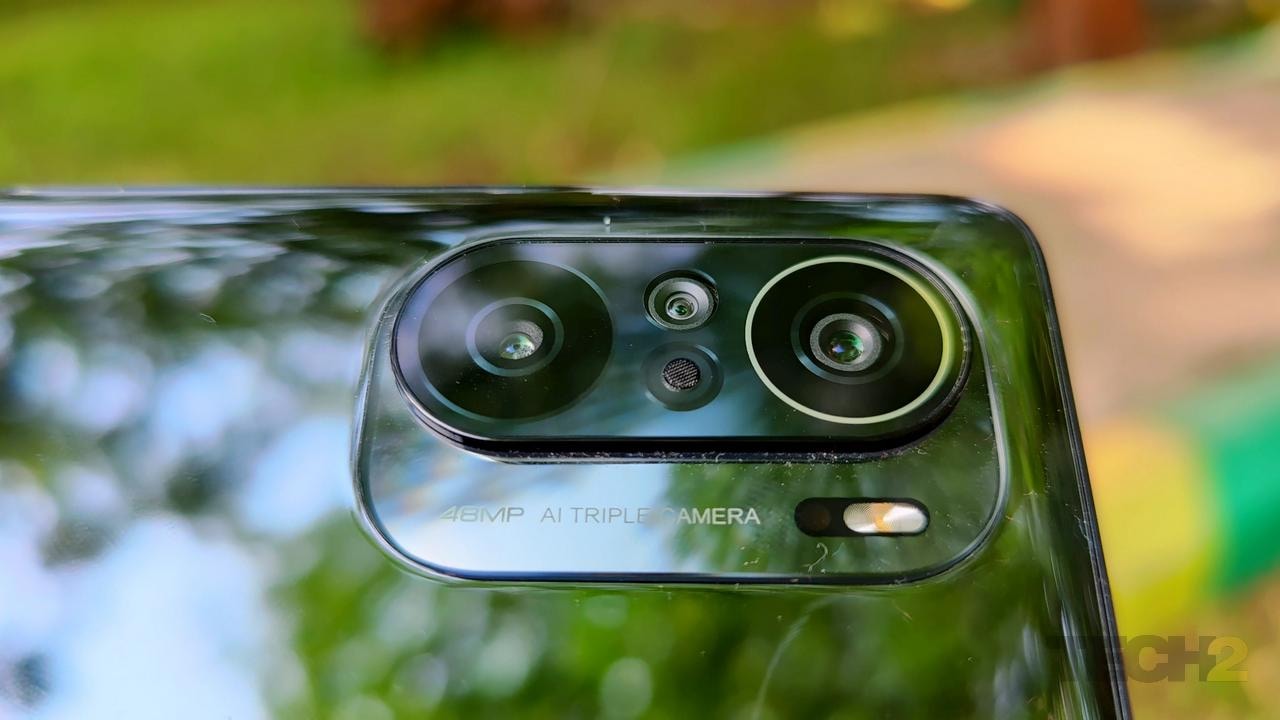Jaison LewisJun 12, 2021 11:48:25 IST
The Mi 11x is the most affordable version of Xiaomi’s Mi 11-series of phones launched in India. Despite its budget pricing, the 11x is feature-heavy, and on paper, one of the better deals you can get for under Rs 30,000. Promising great value for money, the Mi 11x has plenty going for it – it looks great in the images, is equipped with a capable Snapdragon 870 chipset and an attractive display. However, can it impress in real-world use? Time to put the Mi 11x to the test.
Build and Design

The finish on the phone is spectacular; the rear panel is super glossy, reflective and a fingerprint magnet. Image: Tech2/Jaison Lewis
The Mi 11x comes in three colour options – Cosmic Black, Lunar White and Celestial Silver. Bundled in the box with the Mi 11x are a soft plastic case, a USB Type-C cable and a 33-watt power adapter.
For our review, we got the Cosmic Black 8 GB + 128 GB storage version. The finish on the phone is spectacular; the rear panel is super glossy, reflective and a fingerprint magnet. Despite this, the phone feels quite safe to hold as it doesn’t really slip from your grasp. For added protection, you can use the included soft plastic case to ensure the phone is safe at all times. The 11x also comes with Gorilla Glass 5 protection front and back, which should shield the phone from most basic dings and scratches. The phone weighs in at under 200 grams, and is slim, at just 7.8 mm thickness without the cover. However, with the cover on, it feels a lot bulkier.
The phone has an IP53 rating, which means it is protected from dust, and while it will survive the occasional raindrops or a sweaty jog, it will not survive being dunked into a glass of water.

It is possibly one of the best speakers I have sampled on a phone. Image: Tech2/Jaison Lewis
The 11x has clear and loud stereo sound. It is possibly one of the best speakers I have sampled on a phone. That said, while the level of separation is exceptional, I don’t think it creates enough of a surround sound effect to deserves the Dolby Atmos endorsement.
I also love the fact that Xiaomi went with the power button fingerprint scanner. I feel it’s a much better way to implement a fingerprint scanner than the on-screen one, and maybe even better than a rear-mounted scanner.
Specifications
Display: 6.67-inch AMOLED, 120 Hz, 2400 x 1080 pixels
Chipset: Snapdragon 870
Graphics: Adreno 650
RAM + Storage in GB: 6 + 128, 8 + 128 (Tested)
Expandable storage: NA
Primary Camera: 48 MP, f/1.79 aperture
Secondary cameras: 5 MP Telemacro and 8 MP ultra-wide-angle f/2.2
Selfie Camera: 20 MP with f/2.4 aperture
Battery: 4,520 mAh
Software: MiUI 12 (based on Android 11)
Colour variants: Cosmic Black, Lunar White, Celestial Silver
Display
The Mi 11x has a 6.67-inch AMOLED display with a 120Hz refresh rate and 2,400 x 1,080 resolution. The screen size is pretty big; the display has a peak brightness of 1,300 nits and a contrast ratio of 50,00,000: 1. The 120hz refresh rate makes everything super smooth. The phone also comes with MEMC for videos, with the tech artificially adding extra frames to videos to make them look smoother on high-frequency screens. We have seen this on a couple of devices before, including on the One Plus 8 Pro. The videos in most cases look weird, but some of them do look good with the effect. Fortunately, you can enable/disable it, according to your preferences.

The Mi 11x has a 6.67-inch AMOLED display with a 120Hz refresh rate and 2400 x 1080 resolution. Image: Tech2/Jaison Lewis
The Mi 11x can also display HDR10+ content, a new format of HDR that potentially offers better picture quality over regular HDR. HDR+ is meant to rival the proprietary Dolby Vision format. The phone offers a good combination of audio and visuals, making it perfect for video consumption and gaming.
Software
Software for me has been a rather sore point when it comes to devices running MIUI. Considering I hold a special place for the original Mi 3 version of MIUI, I have been disappointed with MIUI for a while now. However, with the Mi 11X, I feel Xiaomi has taken a step in the right direction. Not that there isn’t any bloatware anymore (it’s very much present), but you can now choose to not participate in its advertising program. The app recommendations remain, but now, you can remove it from certain places and it isn’t in your face like it used to be.
MIUI also has my favourite implementation of a lock screen. Within the lock screen, it displays a space view of Mars; unlocking the devices results in the surface being zoomed into. I could unlock this phone a million times and not get bored. I did accidentally enable MIUI’s advertisement-based lock screen named Glance. It was a task to find the setting to remove it, but it is there, hidden within the Settings menu.
I also appreciate that Xiaomi always includes an Infrared blaster in its devices. It is super useful around the house, considering how easy it is to misplace remote controls.
The Mi 11X is powered by a Snapdragon 870 SoC, which features an Adreno 650 GPU. The GPU does a good job with games. Additionally, the device also has a 360 Hz touch sampling rate, which is meant to give the user a significant advantage during gaming. To be honest, I didn’t feel my gaming experience improve by leaps and bounds by this major bump in touch sampling rate. All the games ran well and even Genshin Impact – running on all cylinders – was handled well. While it can handle the load, handling the heat generated was tough for the 11x. The phone grew quite hot in under ten minutes of gaming to a point where it was uncomfortable to hold.
The phone also warmed up a bit while running the camera. Even though it didn’t grow hot enough to make holding it uncomfortable, that it happens at all is a matter of concern. I think this heating problem is not an issue with Xiaomi’s implementation of the chip, but an issue with the new series of chips from Qualcomm – they just tend to run quite hot. Both the 870 and the 888 have heating issues in pretty much every phone they power. Hopefully, this is something that can be handled with a software update and won’t end up degrading the processor in the long run.
For daily tasks and average use, the phone was pretty stable, and the Snapdragon 870 performed well.
Camera

Not just images, even videos captured with this phone are seriously impressive. Image: Tech2/Jaison Lewis
The Mi 11x comes with a 48 MP main camera, which is supported by an 8 MP ultra-wide shooter and a 5 MP tele/macro camera. When I first used the Mi 11x’s camera, I was blown away by the quality of images I could extract from its array. Not just images, even videos captured with this phone are seriously impressive. It has a macro video mode that is simply bonkers; even without a tripod, I managed to capture some stunning footage with it.
Click here to see the camera samples:

The options you can play with in both video and photo modes are some of the best I have seen with any in-built camera app. You can take pictures and edit out the entire skyline to replace it iwth an animated sky if you like, or even turn day into night. Not to forget the video toolbox that lets you pull off some impressive moves including dolly zoom shots, time freeze and pre-edited cuts for vlogs. All of this works well and makes the camera super desirable. That is until you put it to work at night.
Night pictures – even in night mode – were poor. Anything shot at night had excessive grain and was even patchy in some places. This transformation between light and dark areas is more apparent when you’re shooting a video and going from a bright place to a darker place; into a tunnel, for example.
The 20 MP front-facing camera performed well in daylight and even at night, as it isn’t plagued by the same issues. I also liked the dual video mode, where you can record a vlog using the front and rear cameras at the same time.
For me, the camera on the Mi 11x was as impressive as it was disappointing. Anything shot with adequate light looks beautiful, and as darkness falls, the camera’s performance drops considerably. With such a great camera app, I wish the hardware could have matched its potential.
Battery
The Mi 11x’s 4,520 mAh battery will last an entire day when the phone is subjected to normal use. If you play a lot of games or are a power user, the battery lasts around 3.5 hours of intense use. The 33 W fast charger can juice the phone back to 100 percent in a little over an hour. Even a fifteen-minute charge is good enough to get a few extra hours out of this phone.
Conclusion
There is a lot to love about the Mi 11x. It is a spectacular phone for the price. Xiaomi has clearly made some changes to its advertising policies and made the overall software experience a lot less annoying. Sound quality from the built-in speakers and the display quality are both deeply impressive. The only area in which it probably falls short is the performance of its camera at night, and that seems like a waste of potential considering how good the camera app is.
Post a Comment